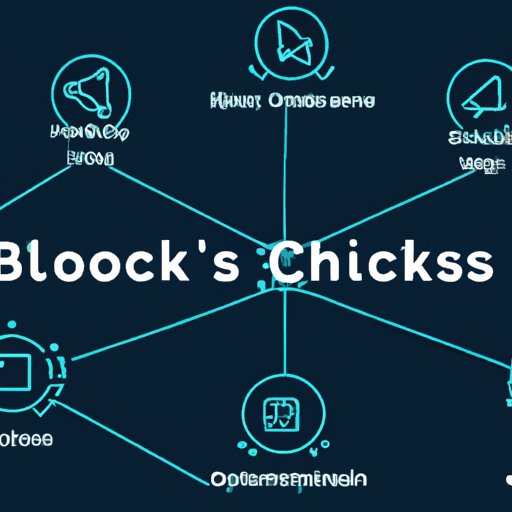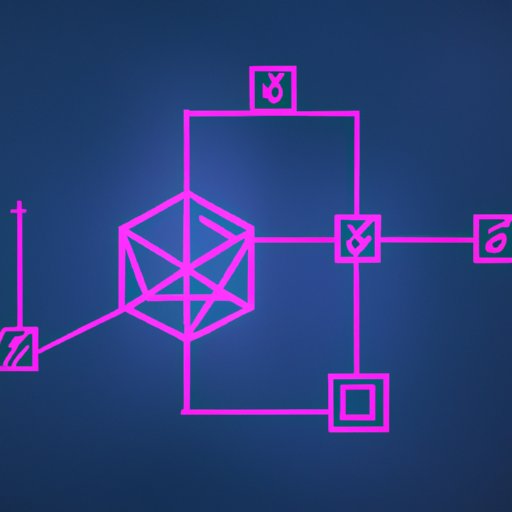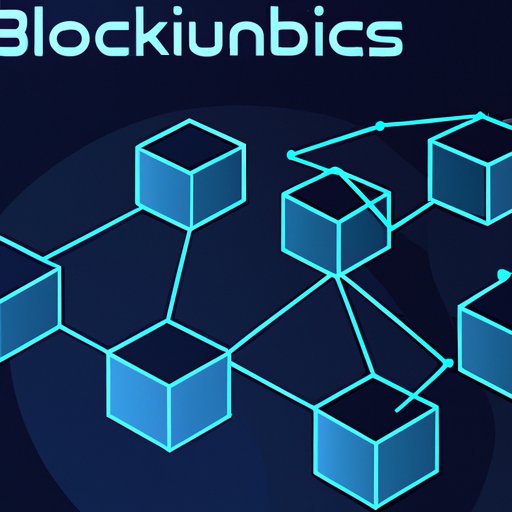Introduction
The concept of decentralization is often seen as a difficult topic to understand. In its simplest form, decentralization means that no single entity has control over a given system or network. This has been an important concept in the development of blockchain technology, and it has allowed for many new applications and opportunities to arise.
A blockchain is essentially a distributed ledger technology (DLT) which records data in a way that is both secure and immutable. It is composed of blocks of information, and these blocks are linked together in a chain. Each block contains a cryptographic hash of the previous block, which ensures that the data within it cannot be modified or tampered with in any way.

Exploring the Decentralized Nature of Blockchains
The decentralized structure of blockchains makes them attractive for various use cases. By removing the need for a central authority, blockchains can provide users with greater security, privacy, and autonomy. They also ensure that all participants have equal access to the system, regardless of geographical location.
Benefits of Decentralization
Decentralization offers many benefits to users of a blockchain. For starters, it eliminates the need for a central authority, which can help to reduce costs and increase efficiency. Additionally, it allows for greater transparency, as all transactions are recorded on the blockchain and can be viewed by anyone.
Furthermore, decentralization ensures that the data stored on the blockchain is secure and immutable. Since the data is not controlled by any single entity, it is virtually impossible for it to be manipulated or corrupted. This makes it ideal for storing sensitive information, such as financial or medical records.
How Decentralization Makes Blockchains More Secure
The decentralized nature of blockchains also helps to make them more secure. Since the data is not controlled by any single entity, it is much more difficult for hackers to gain access to it. Additionally, since the data is stored on multiple computers, it is much more resilient to outages or other disruptions.
Another benefit of decentralization is that it can help to prevent malicious actors from gaining control of the network. This is because if one node is compromised, the other nodes will still remain secure. This makes it much harder for attackers to disrupt the network or manipulate the data.

Understanding the Basics of Decentralized Blockchains
In order to understand how decentralized blockchains work, it is important to first understand the different types of blockchains. There are two main types of blockchains: public and private.
Types of Decentralized Blockchains
Public blockchains are open to anyone and are usually permissionless. This means that anyone can join the network without needing any special permissions or authorizations. Private blockchains, on the other hand, are permissioned and require users to be granted access before they can join the network.
Both types of blockchains are decentralized, but public blockchains tend to be more so since anyone can join the network. Private blockchains, however, are typically more secure since only authorized users can access the network.
Impact on the Economy
The emergence of decentralized blockchains has had a significant impact on the global economy. For starters, it has enabled the creation of new digital currencies, such as Bitcoin and Ethereum, which have disrupted traditional banking systems and created new opportunities for investors.
Furthermore, decentralized blockchains have enabled the development of smart contracts, which allow users to enter into agreements without the need for a third-party intermediary. This has opened up new possibilities for businesses and individuals, allowing them to create and execute contracts without the need for costly legal fees.
Using Decentralized Blockchains in Business Applications
Decentralized blockchains are increasingly being used in business applications. Their ability to provide secure, immutable data storage makes them ideal for a variety of use cases, such as tracking supply chains, managing customer data, and recording financial transactions.
Benefits for Businesses
For businesses, the use of decentralized blockchains can offer numerous benefits. For starters, it can help to reduce costs since there is no need for a central authority to manage the network. Additionally, it can provide greater transparency and security, as all transactions are recorded on the blockchain and can be viewed by anyone.
Potential Challenges
While there are many potential benefits to using decentralized blockchains, there are also some potential challenges. For example, since the data is stored on multiple computers, it can be difficult to maintain consistent performance across the network. Additionally, building applications on top of decentralized blockchains can be complicated and time consuming.
Conclusion
Decentralization is an important concept in the development of blockchain technology. By removing the need for a central authority, blockchains can provide users with greater security, privacy, and autonomy. Furthermore, they can be used in a wide range of business applications, offering numerous benefits to businesses. However, there are also some potential challenges that should be considered when using decentralized blockchains.
(Note: Is this article not meeting your expectations? Do you have knowledge or insights to share? Unlock new opportunities and expand your reach by joining our authors team. Click Registration to join us and share your expertise with our readers.)
